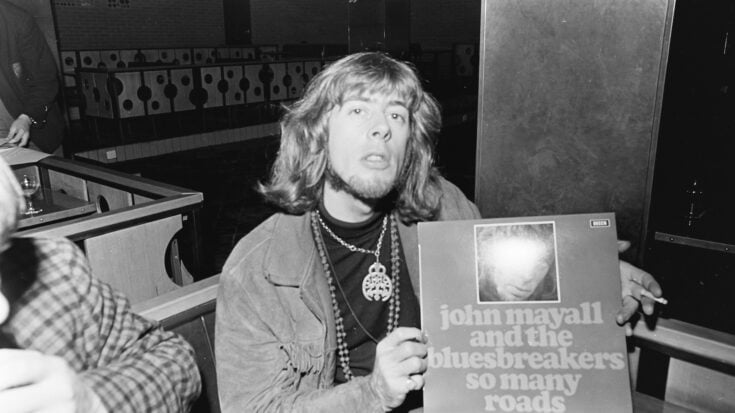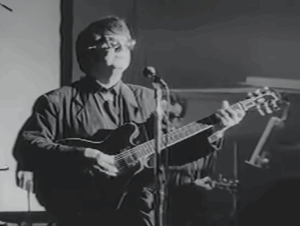10 Timeless Blues Rock Albums Worth Revisiting

Photo by Jack de Nijs for Anefo / Anefo, CC0, via Wikimedia Commons
A Look at Blues Rock’s Lasting Impact
Blues rock has produced albums that continue to shape new players and longtime fans. These records balance emotion, grit, and strong musicianship in ways that still sound fresh. Whether you’re hearing them for the first time or coming back after years, each album offers something different.
The following ten releases highlight key moments in the genre. From boundary-pushing guitar work to bold vocal styles, these albums show how blues rock developed across decades.
Johnny Winter – Second Winter (1969)
Johnny Winter’s Second Winter stands out for its unusual format: a three-sided double LP with a blank fourth side. The album features Winter’s intense guitar style and rough-edged vocals on tracks like “Memory Pain” and “Fast Life Rider.” His take on “Highway 61 Revisited” brings a Texas feel to Dylan’s song.
The record’s untamed sound shows Winter at full strength, blending speed and emotion in a way few players matched at the time.
Taste – On the Boards (1970)
Before launching his solo career, Rory Gallagher led Taste, a trio known for tight rhythms and creative ideas. On the Boards showed Gallagher mixing blues, jazz, and hard rock, giving the album a distinct feel. Songs such as “What’s Going On” and “It’s Happened Before, It’ll Happen Again” highlight his sharp tone and ability to improvise.
The record pushed blues rock in new directions and became an important moment in Gallagher’s early work.
Savoy Brown – Hellbound Train (1972)
Savoy Brown never broke into the mainstream the way some of their peers did, but Hellbound Train remains one of their strongest efforts. The title track moves slowly at first, building until it reaches a frantic finish that became a fan favorite.
Led by Kim Simmonds, the album offers a darker and more reflective side of blues rock, supported by memorable guitar lines.
Paul Kossoff – Back Street Crawler (1973)
Paul Kossoff’s solo album Back Street Crawler is often overlooked despite his success with Free. The record shows his expressive vibrato and softer approach on songs like “Molten Gold” and “Tuesday Morning.”
More personal than his earlier work, the album highlights Kossoff’s style and remains an important piece of his legacy.
Canned Heat – Boogie with Canned Heat (1968)
Boogie with Canned Heat captures the late ’60s blues scene with its mix of harmonica, slide guitar, and steady grooves. “On the Road Again” became a hit, but the album’s deeper tracks—such as “Amphetamine Annie” and “Fried Hockey Boogie”—show the band’s respect for older blues traditions.
The record balances tradition and energy, making it one of Canned Heat’s strongest releases.
Stevie Ray Vaughan and Double Trouble – Texas Flood (1983)
Texas Flood introduced Stevie Ray Vaughan as a major force in blues rock. Supported by Double Trouble, he delivered powerful versions of “Pride and Joy,” “Love Struck Baby,” and the title track.
His playing combined speed, control, and emotion, helping revive the genre in the 1980s and inspiring countless guitarists.
ZZ Top – Rio Grande Mud (1972)
Before becoming widely recognized through television and music videos, ZZ Top built their early sound through blues-driven records. Rio Grande Mud shows the band’s gritty style on songs like “Just Got Paid” and “Francine.”
Billy Gibbons’ tone and phrasing are central to the album, laying a strong foundation for the group’s later success.
Roy Buchanan – Roy Buchanan (1972)
Often described as one of the greatest yet least-known guitarists, Roy Buchanan delivered a powerful set on his self-titled album. His phrasing and dynamics shine throughout, with “The Messiah Will Come Again” standing out as a landmark instrumental.
The album demonstrates Buchanan’s emotional range and technical skill, offering a rewarding listen for fans of expressive guitar work.
Robin Trower – Bridge of Sighs (1974)
Robin Trower built his own style with Bridge of Sighs, blending blues riffs with atmospheric tones. Tracks like “Too Rolling Stoned” and the title song highlight Trower’s expressive approach, supported by James Dewar’s strong vocals.
The album remains one of the most recognizable releases of the era and continues to attract new listeners.
John Mayall and the Blues Breakers – Blues Breakers with Eric Clapton (1966)
Known as “The Beano Album,” this release helped shape British blues rock. Eric Clapton’s guitar sound—created with a Les Paul through a loud Marshall amplifier—became influential almost immediately. From fast tracks like “Hideaway” to the slower “Have You Heard,” the album marked an important moment for the genre.
Its impact still echoes through blues rock recordings around the world.












